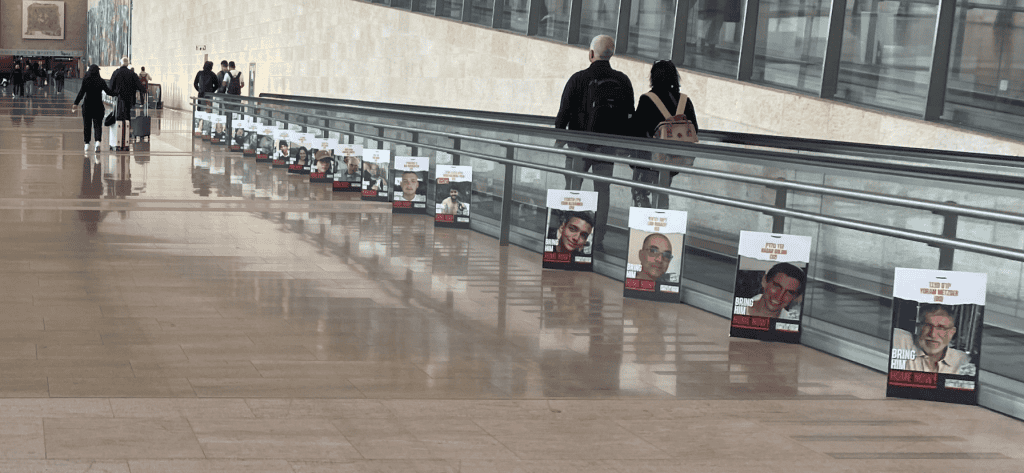
On January 18, Kfir Bibas turned one year old while in captivity, a reminder of the 136 men, women, and children still being held hostage in Gaza. Hamas originally took 240 hostages during its October 7 attack on Israel, but more than 100 have been freed as a result of the November deal. Since then, there have been no additional hostage deals. As the war proceeds, Israel continues to state that bringing these hostages home remains a top priority. It is also investigating the reported deaths of multiple hostages in recent weeks.
Reports on January 18 indicated that medicine for certain hostages had arrived at the Gaza border as part of a larger package of medical supplies for Gazans. However, there was confusion as to whether the trucks entering Gaza could be searched and how exactly the medicine could verifiably be delivered to the hostages. Meanwhile in Israel, family members of hostages have continued to speak out. UN Secretary General Antonio Guterres met several of the recently freed hostages on the sidelines of the World Economic Forum in Davos.
Israel Defense Forces spokesperson Rear Admiral Daniel Hagari said on January 17 that “we are making every effort to produce intelligence about the hostages and adjust the operational activity according to the intelligence available to us. It must be said to the public – there is no complete picture of the hostages. We are in a continuous intelligence effort to complete this picture, to build it, to achieve it all the time.” His comments illustrate how, even after 100 days of fighting in Gaza, the issue of the hostages continues to be a complex challenge for the IDF.
The IDF is rotating forces in Gaza, after many reservists have now seen three months of training and fighting. Many of them have not been home for the entire three-month period, creating economic challenges for Israel as more than 300,000 jobs are vacant after Israelis were called up for military service.
In Gaza, the IDF continues to dismantle terrorist infrastructure. The focus has partially shifted to an area in central Gaza. In addition in Khan Yunis, heavy fighting continued this week. The IDF said that over 40 terrorists were killed between January 17 and 18. Israel also revealed that the Givati infantry brigade “is now fighting in the southernmost area that IDF ground troops have operated in so far. The soldiers eliminated dozens of terrorists in close-quarters combat and with the assistance of tank fire and air support.” This area is in Khan Yunis. Givati infantry, one of several Israeli infantry brigades, had been operating there since late December. They are bolstering paratroopers, commandos and elements of an armored brigade that are in Khan Yunis, as well. The southern area has been a tough battle since the IDF entered the area in a rapid maneuver in early December. It is the home town of Hamas leader Yahya Sinwar.
A major focus in Gaza continues to be the dismantling of terrorist infrastructure. The IDF said on January 18 that soldiers from the elite Yahalom combat engineers and the Shaldag unit “exposed and destroyed the heart of Hamas’ weapons manufacturing industry near the Salah Al-Din Road in the Gaza Strip. The area consists of weapons factories and lathes, both above and below ground, that were used to produce ammunition and weapons for Hamas operatives.” The IDF did not say when the site was exposed or how long it took to dismantle it. It was one of a number of terrorist infrastructure sites the IDF mentioned on January 18. In addition, the IDF provided new details on its estimate of the total number of rockets launched near schools in Gaza. The total number is estimated to be 370, and the Israeli military provided an infographic and footage related to the claims.







